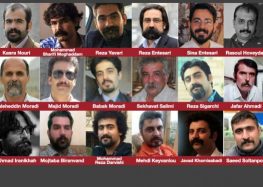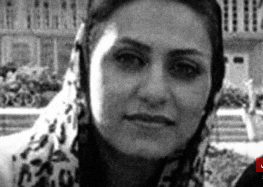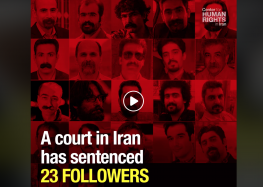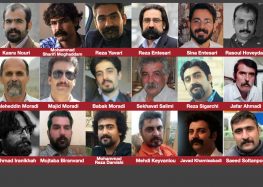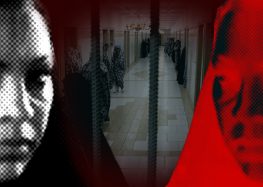18 Sufis on Strike in Iran’s Great Tehran Penitentiary Issue Three Demands
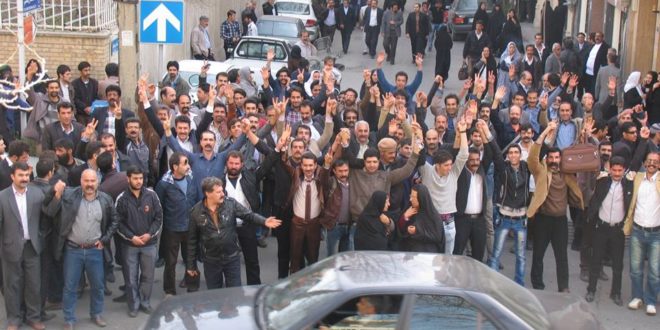
Eighteen Sufi dervishes of the Gonabadi Order are on hunger strike in Iran’s Great Tehran Penitentiary (GTP) including Zafarali Moghimi, who is in poor health after refusing food for almost five months, according to Faezeh Abdipour, a member of the persecuted faith.
Those who recently joined the hunger strike include Salaheddin Moradi, Mohammad Reza Darvishi, Ali Bolboli, Abbas Dehghan, Ali Mohammadshahi, Mojtaba Biranvand, Heydar Teymouri, Majid Yarahmadi, Saeed Soltanpour, Babak Taghian, Ehsan Malekmohammadi, Sekhavat Salimi, Reza Bavi and Akbar Dadashi, Abdipour told the Center for Human Rights in Iran (CHRI) on September 17, 2018.
The prisoners are demanding an end to the house arrest of their Tehran-based spiritual leader Nourali Tabandeh, the release of detained female dervishes held in Gharchak Prison in the city of Varamin, and for the GTP to keep all dervish political prisoners in the same ward.
There has been no news of the eight dervishes who were sent to solitary confinement on August 29 for taking part in a sit-in protest in the GTP: Reza Entesari, Mohammad Sharifi Moghaddam, Kasra Nouri, Morteza Kangarlou Bilchi, Sina Entesari, Mehdi Eskandari, Amir Nouri and Hessam Moini.
Their families were told that new charges have been brought against them and they cannot be contacted or receive visits until judicial investigations are completed, according to Abdipour.
The eight were moved into solitary confinement after GTP guards violently attacked about 30 dervishes holding a sit-in outside an officer’s post in Ward 3 to protest the detention of four Sufi women in Gharchak Prison.
On February 19th and 20th, 2018, nearly 300 Gonabadi Sufis were arrested during a protest near the home of their spiritual leader. The protests left at least one dervish and three policemen dead.
At least 20 of the protesters have been issued heavy prison sentences including eight who were issued the sentences in absentia after they refused to appear in court to protest the denial of their due process rights.
Iran’s Gonabadi Dervishes believes in a different interpretation of Islam than the ruling Shia establishment. The Islamic Republic views any alternative religious belief system, especially those seeking converts, as a threat to the prevailing Shia order and has imprisoned dervishes in the past as part of an ongoing persecution campaign.


